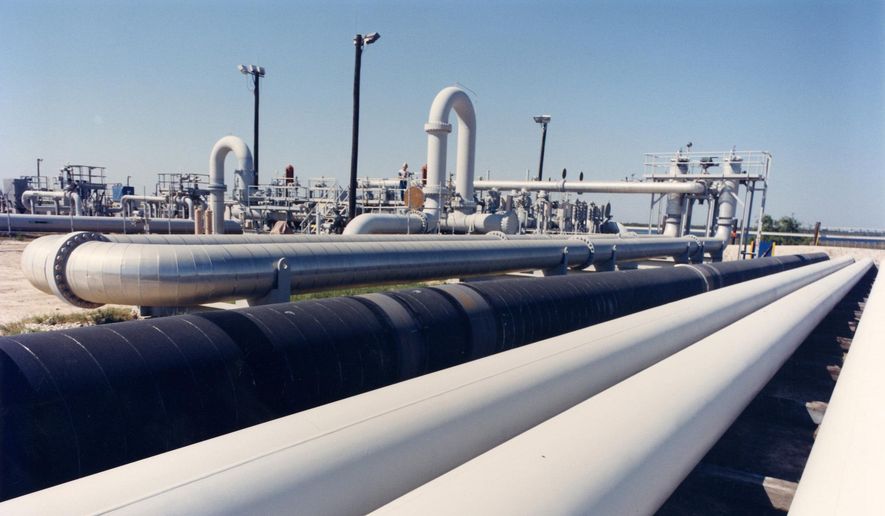GOP lawmakers on Capitol Hill want more information about how the Biden administration plans to replenish the strategic petroleum reserve after draining 180 million barrels to blunt high gasoline prices.
The Department of Energy earlier this month outlined plans for a buyback bidding process to repurchase the first 60 million barrels or one-third of the total amount to be released by the end of October.
But Republicans on the House Oversight Committee are questioning when the buyback will start.
“Given continued hikes in both fuel prices and inflation without a noted decrease in demand, we fail to see how oil prices will be lower during the proposed buyback timeframe,” the Republicans, led by Rep. James Comer of Kentucky and Rep. Fred Keller of Pennsylvania, wrote in a letter last week to Energy Secretary Jennifer Granholm.
“Now more than ever, the DOE should establish policies that strive to produce more domestic energy instead of using an emergency oil supply in a failed attempt to curb inflation,” they said in last Thursday’s letter.
DOE has only said the buyback will occur in coming years and will be dependent on when future oil prices and demand are expected to be significantly lower, perhaps after fiscal 2023.
The GOP lawmakers requested a briefing on Ms. Granholm’s plan to restore all 180 million barrels. The department did not respond to a request for comment.
Mr. Biden announced March 31 an unprecedented release of 1 million barrels of oil per day from the reserves for the following six months, totaling 180 million barrels in response to ditching Russian oil over the country’s war against Ukraine.
Critics slammed the president for tapping into the emergency supplies, accusing Mr. Biden of misusing the oil for political purposes to lower prices before the midterm elections. They also said it would drain the SPR to its lowest level since March 1984 from nearly 600 million barrels to less than 400 million.
“The SPR is intended for emergency supply chain disruptions — not as a stopgap to make up for the Biden Administration’s war on domestic energy,” the lawmakers’ letter read.
Energy analysts were skeptical the release would make a noticeable difference in the price at the pump, given that one million daily barrels only equates to roughly 5% of the 20 million the U.S. consumes each day and 1% of the approximately 100 million that is used every day globally.
Gas prices have continued to steadily climb to new all-time highs in the U.S., despite the release and other efforts by Mr. Biden to lower fuel costs. Refineries are at their capacities and global demand continues to outpace supply.
• Ramsey Touchberry can be reached at rtouchberry@washingtontimes.com.




Please read our comment policy before commenting.